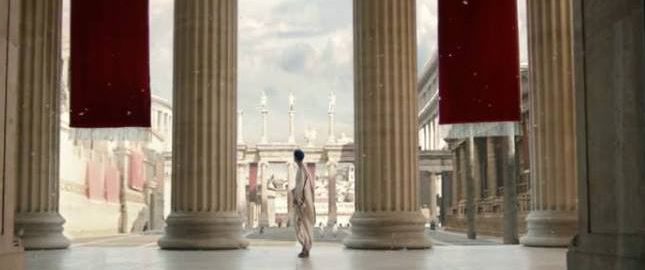We associate a lawyer with a highly rational person, based on irrefutable evidence and facts, respecting the written law. Religion, faith and worship do not go hand in hand with this profession, at least not in terms of judgment, but you should be aware that the lawyers of ancient Rome, known for their activities during the times of the emperor Septimius Severus (by the way, a great lover of law since his childhood), their roots go back to the function of a pontiff, that is, an archaic priest.
To realize this, it should be noted that ancient Romans who created the law (ius) were not only experts in it, but also “builders”. The legal profession had the prerogative of making law during the empire. Before this happened, however, the “lawyers” had come a long way. It was an archaic priest, then a republican aristocrat, then an advisor and “friend” to princeps from the period between Augustus and the Antony, and finally a leading officer of the Sevelian and late antique administration.
Archaic priest, belonging to the college of pontiffs (the most important religious institution of archaic Rome, next to the flamines, augurs and vestals), was the interpreter of the most important resources of the community’s knowledge – the calendar, as well as prayers and invocations to the gods. He was a “sage” who was asked for advice – how to “talk” to the gods, but also how to treat your friend or foe, how to behave in a given situation so as not to offend your ancestors. Something like unwritten law was created from the pontificate’s advice. The creation of ius was based on mores, traditional patterns of behaviour, known even in the pre-state phase of community development. The people asked the pontiff a question, and he replied how to behave, what to say, what to do. It was the responsum model which, after numerous transformations, became one of the most enduring foundations of Roman legal knowledge.
With time, however, the image of the “sage-priest” loses its clarity and meaning, and its place is taken by the image of the “well-born wise man”. A relationship is emerging between legal knowledge and the primacy of great families, which is to survive at least until the end of the Republic. Responsalaid the foundations for the rule of law, and over time they became the backbone of the ruling relations. However, lex publica, or general rules were still not dealt with. The question-answer principle was still left, only the most important issues were listed, such as the Law of XII Tables.
The answers obtained from the well-born still existed in the sphere of mos maiorum. The precedents and past situations were cited. Although the field of attraction surrounding law and its language has shifted from religion to politics, this has not led to a change in mindset. The attitude towards people awaiting answers has not changed radically in the new “aristocratic expert” compared to his priestly predecessor. More attention was paid to the details of the cases, the additional experience was accumulated, but no qualitative changes occurred. Even in the third century BCE, we are dealing with a mostly oral tradition, wisdom composed of words and signs of fellowship. The written form in the rare cases of appearing before the middle of the 2nd century BCE refers only to the problems of political struggle.
Over time, the law “crystallized” – it became more sublime, more mature, it made use of a complex morality based on persuasion and truth, and not only on the customs of ancestors. The former primacy of the pontiffs was also questioned, as mentioned by Mucjus Scewola in the story Cicero. “I have heard from my father, that no one can make a good pontiff, unless he understands the civil law.” (De legibus, 2, 19, 47). This quotation shows a change in mentality – being a pontiff does not mean knowing the law, but it is the knowledge of the law that allows you to be a pontiff. Rational and formal law, conceived in abstract forms, was consolidating. With time, the political crisis buried the link between legal knowledge and “power” in the state. Lawyers began to separate themselves as an elite and professional group that supported the emperor after the fall of the republic. From the time of Augustus, lawyers deepened the autonomy of their doctrine and developed the logic of their judgments over the course of nearly two centuries. The emperors made unwritten alliances with this new group. They agreed to make certain concessions, ie they did not create a new, their own law, but consulted their decisions with the said lawyers. It became natural over time, and the relationship between lawyers and emperors was strong and open, such as in the time of Hadrian, when his adviser, the eminent lawyer Julian, he inspired many of the emperor’s decisions and served him valuable help, for example in the construction of the Edictum Salvianum.
Towards the end of the second century CE, the Roman Empire was developing an increasingly bureaucratic and centralized model of government, with more and more extensive leadership and control functions. This is happening in the time of Severus when the autonomy of lawyers known from previous years is abolished in exchange for their high positions in the imperial administration. The Severine ministers-lawyers gave shape and direction to an apparatus of extraordinary complexity. A great example of this is Ulpian, the “lawyer-high official” of the time of Alexander Severus. The collective voice of the legal group did not speak through him, the most important was the word of the legislator in the person of the emperor, which the lawyer confirmed using the vast achievements of previous years (extracting what confirmed, and omitting what contradicted new laws) and thus sanctioned ever bolder aspirations successive rulers, crystallizing ius.

